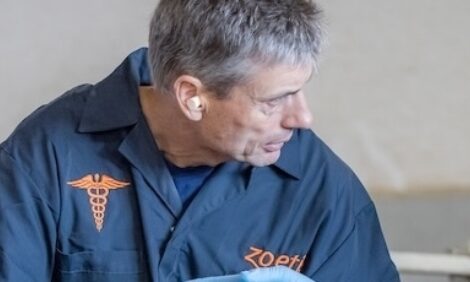



How close are we to developing a vaccine for African swine fever?
We speak to the head of the African swine fever group at The Pirbright Institute about the hard work going into developing a vaccine that could protect the global pig herd from a deadly foe.Early in June 2019, reports emerged from China that shopping mall operator Guangdong Highsun Group Co had announced it was backing the development of an African swine fever vaccine. Highsun said that it would spend 26 percent of its 2018 net assets on supporting research into a natural compound that the company claimed had proven to prevent the contagious disease.
China's Shenzhen Stock Exchange sought further information from Highsun after its announcement triggered a 10 percent surge in its shares, causing a trading suspension.
Many experts were also sceptical of the research behind the development of the vaccine, and rightly so, as China’s Ministry of Agriculture later released a statement that the company had not received a research application and that without experimental data, the claim that a polysaccharide injection is effective in preventing the virus lacked scientific proof.
Dr Dixon, The Pirbright Institute, agreed with the Chinese Ministry of Agriculture in that there is no evidence for a scientific basis to the claims being made by Highsun. This said, it would not be the first time that antivirals have been used to combat a highly virulent disease.
“Antivirals could play a role in reducing virus replication and hence slowing down or stopping the spread of that disease,” she says. “Proof of concept for this approach was obtained by an antiviral company, ViroVet, for classical swine fever virus.
“We are working with ViroVet to further investigate the antivirals they have characterised for ASF.”

The Pirbright Institute have their very own African swine fever group who are certainly making progress in their ASF vaccine research.
“We have been conducting research to underpin vaccine development by improving understanding of how the virus evades hosts defences, especially the main antiviral response type I Interferon,” explains Dr Dixon.
“This knowledge has been applied to the development of gene-deleted live attenuated African swine fever virus vaccines.
“We have shown that deleting several interferon inhibitory genes can produce a virus that doesn’t cause disease but induces an immune response that protects pigs from disease caused by the deadly virus. We are fine tuning these deletions to achieve the necessary safety and efficacy standards for commercial development of the vaccine.
“We have identified genes that can be deleted which could be used for a companion diagnostic test to distinguish infected from vaccinated animals (DIVA) test. This test would be used to monitor vaccination and confirm a disease eradication.
“Our second approach for vaccine development involves identifying which of the viruses 170 genes code for proteins that are immunogenic and can induce a cellular or antibody response. These are being taken forward to develop vaccines by delivering pools of genes in safe virus vectors to pigs and determining which pools can induce an immune response that protects pigs against challenge with the deadly virus.
“We are also trying to understand which immune mechanisms correlate with the protection induced- the types of cellular and antibody responses that are important. We have carried out two different screens for immunogenic proteins, one published in 2018 and one published this month.”
Other researchers in Spain have also been working on ASF virus DNA, with recent studies showing that a naturally attenuated ASFv isolate from wild boar in Latvia can induce protection in pigs and wild boar, which suggests this could be a potential vaccine candidate. Commercially relevant research is protected by patent before publications so some reports are delayed on this matter, explains Dr Dixon.
A number of institutions are now part of the race to rid the global pig herd of one if its most contagious diseases but not so many have been successful.
Earlier this month (2 July), the Vietnam News Agency and Vietnam Television reported on the progress of researchers at the Vietnam National University of Agriculture in their development of a successful vaccine. Again, experts have been sceptical of the claims, with the university’s director, Nguyen Thi Lan later admitting that the vaccine still needed further development and required testing on a larger scale.
The race to eradicate African swine fever continues.







